
Former Departments and Directors of the MPI for Biophysical Chemistry
Manfred Eigen († 2019)
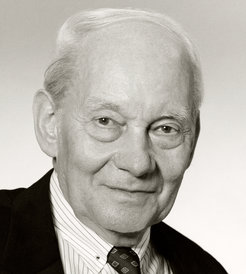
Biochemical Kinetics (1971-1995)
Manfred Eigen belongs to the most versatile German scientists. After his pioneering studies on ultrafast reactions, for which he was honored with the Nobel Prize in Chemistry in 1967, he turned to biochemistry and worked on questions concerning evolution. His theories on self-organization of complex molecules and his development of “evolution machines”, with which he translated his theories into practice, established a new branch of the German biotechnology industry – the evolutionary biotechnology.
Manfred Eigen studied physics and chemistry at the University of Göttingen. After receiving his PhD in physics with Arnold Eucken and two more years as a research associate at the Institute of Physical Chemistry at the University of Göttingen, he moved to the MPI for Physical Chemistry in 1953. There, Manfred Eigen was appointed Director and Head of the Department of Chemical Kinetics in 1958. On his initiative, the MPI for Physical Chemistry was merged with the MPI for Spectroscopy, founding today’s MPI for Biophysical Chemistry in 1971. It was the vision of Manfred Eigen to investigate complex processes of life with biological, chemical, and physical methods at this new institute. A vision which substantially influenced the institute’s success and which is still alive in the departments and research groups today.
Otto D. Creutzfeldt († 1992)
Neurobiology (1971-1992)
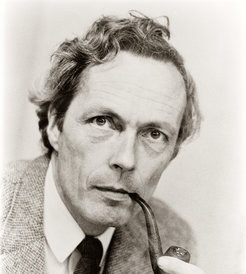
Otto Creutzfeldt made fundamental contributions to the understanding of epilepsy and the role of the cerebral cortex in seeing and speaking. Moreover, using intracellular derivation of cortical neurons he provided substantial insights into the neurophysiological basis of EEGs and the functioning of the visual system. He trained a number of important neurobiologists, among them Nobel laureate Bert Sakmann and Max Planck Directors Wolf Singer and Heinz Wässle.
Otto Creutzfeldt studied medicine in Freiburg and did his doctoral thesis on a neurophysiological topic. In 1962, he joined the MPI for Psychiatrics in Munich, where he was Head of the Department of Neurophysiology from 1965 onwards. In 1971, he moved to the MPI for Biophysical Chemistry where he headed the Department of Neurobiology till his death in 1992.
Leo De Maeyer († 2014)
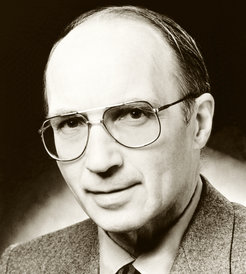
Experimental Methods (1971-1996)
Already shortly after finishing his PhD the native Belgian Leo De Maeyer came to work with Manfred Eigen at the MPI for Physical Chemistry in 1954. There, he substantially contributed to further development of the so-called relaxation techniques. Leo De Maeyer’s experimental methods have found broad application in many areas of biology, chemistry, and physics. Besides the relaxation techniques he investigated, among others, the kinetics of chemical processes and worked on electronic data processing and process control. In 1965, he was appointed as Scientific Member of the Max Planck Society and became Director at the MPI for Physical Chemistry. He was deeply involved in the institute’s consolidation with the MPI for Spectroscopy and the foundation of the new MPI for Biophysical Chemistry. There, Leo De Maeyer headed the Department of Experimental Methods until his retirement in 1995.
Thomas Jovin
Molecular Biology (1971-2007) – Contact
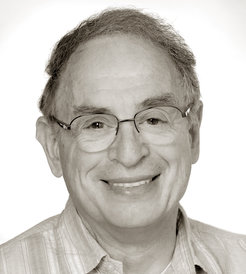
Two research areas are at the focus of Thomas Jovin's interest: the activation of normal or cancerous cells with growth factors or other external factors as well as the molecular mechanisms of Parkinson’s Disease. Thomas Jovin’s research group applies a number of methods in biophysics, molecular, and cell biology to find the cause and possible preventive measures of the toxicity of so-called amyloid aggregates in the brain’s nerve cells.
Thomas Jovin studied biology at the California Institute of Technology (USA) and received his PhD in medicine from Johns Hopkins University (USA) in 1964. He was appointed as Scientific Member of the Max Planck Society in 1969 and was Director at the MPI for Biophysical Chemistry from 1971 until 2007. He has been heading the Emeritus Group Laboratory of Cellular Dynamics since and cooperates closely with the Research Group Cellular Dynamics headed by Donna Arndt-Jovin. Furthermore, he holds an honorary professorship at the University of Buenos Aires (Argentina).
Manfred Kahlweit († 2012)
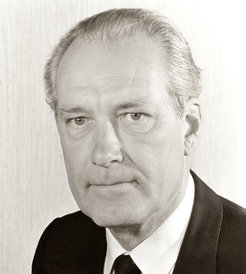
Kinetics of Phase Transitions (1971-1994)
Manfred Kahlweit's research on crystal growth, phase diagrams of complex systems and micro-emulsions provided important insights for the application of physicochemical methods and contributed to the elucidation of fundamental mechanisms of biological processes. As a member of the University of Bremen’s founding senate and as temporary head during the foundation of the MPI of Colloids and Interfaces in Potsdam, he made important contributions to the development of the scientific landscape in Germany.
After his studies at the University of Göttingen, the physicist Manfred Kahlweit did his diploma and PhD at the MPI for Physical Chemistry. In 1963, he was appointed as Scientific Member of the same institute. Manfred Kahlweit significantly accompanied the foundation of the MPI for Biophysical Chemistry in 1971. There, he headed the Department of Kinetics of Phase Transitions from 1971 until 1996.
Hans Kuhn († 2012)
Molecular Systems (1971-1984)
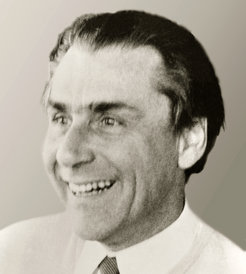
The native Swiss Hans Kuhn worked on the chemistry of interfaces. He furthermore investigated the self-organization of molecular systems. In this context, he designed supra-molecular machines and analyzed the physicochemical conditions for the origin of life. His research contributed to the understanding of the mechanisms of photosynthesis, of proton pumps, and of ATP synthases. One of his associate researchers was the later Nobel Prize laureate Erwin Neher.
After studying chemistry at the ETH Zurich (Switzerland), Hans Kuhn received his PhD from the University of Basel (Switzerland). Following postdoctoral stays with Linus Pauling at the California Institute of Technology (USA) and with Nils Bohr in Copenhagen (Denmark), Hans Kuhn was appointed professor at the University of Basel in 1951. In 1953, he became Director at the Institute of Physical Chemistry at the University of Marburg. In 1971, he joined the MPI for Biophysical Chemistry as Director and Head of the Department of Molecular Systems. He retired in 1985.
Fritz Peter Schäfer († 2011)
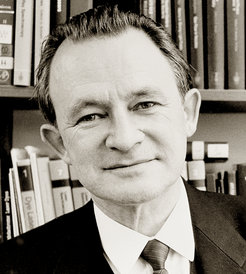
Laser Physics (1971-1994)
Fritz Peter Schäfer applied spectroscopic techniques in order to investigate stimulated emission and quantum processes of chemical compounds. He furthermore occupied himself with lasers and thus developed the dye laser (at the same time as Peter Sorokin) which was applicable on a broad spectral band. Later he was also interested in free-electron lasers. With Jürgen Troe and Dirk Basting he founded the Laser Laboratorium Göttingen e.V. (LLG).
The physicist Fritz Peter Schäfer studied at the University of Marburg and completed his PhD with Hans Kuhn at the university’s Institute of Physical Chemistry in 1961. He became professor at the institute in 1969. In 1971, he joined the newly founded MPI for Biophysical Chemistry as Director and set up the Department of Laser Physics, which he headed until his retirement in 1994.
Hans Strehlow († 2012)
Electrochemistry and Reaction Kinetics (1971-1984

After having dealt with aspects of electrochemistry early in his career, Hans Strehlow was later interested in questions concerning reaction kinetics of elemental processes in solution. Important insights into the kinetics of ion reactions in liquid solution and detergent mixtures were born of his research. Very close to Hans Strehlow’s heart was the promotion of young scientists.
Hans Strehlow studied chemistry in Bonn and Munich. After his PhD he joined the MPI for Physical Chemistry in Göttingen in 1950 and initially worked with Karl Friedrich Bonhoeffer. The Max Planck Society appointed him Scientific Member in 1958. He became Director at the Institute of Physical Chemistry in 1966. He was one of the founding Directors of the MPI for Biophysical Chemistry officially inaugurated in 1971. Until 1984, he headed the Department of Electrochemistry and Reaction Kinetics there. One of his doctoral students was Jens Frahm, today Head of the Biomedical NMR at the institute.
Albert Weller († 1996)
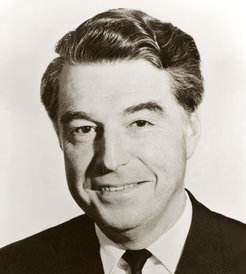
Spectroscopy (1971-1990)
Albert Weller's research dealt with the physicochemical basis of photochemistry. He worked on the molecular absorption and emission spectroscopy of crystals, solutions, and fumes as well as on electron spin resonance spectroscopy. He moreover performed pioneering kinetic, thermodynamic, and spectroscopic experiments with electronically stimulated molecules.
After receiving his PhD from the University of Tübingen, Albert Weller worked in the lab of the electrochemist Theodor Förster in Göttingen and Stuttgart. In 1965, he became professor at the MPI for Spectroscopy in Göttingen and was Director at the then newly founded MPI for Biophysical Chemistry from 1971 until his retirement in 1991.
Victor P. Whittaker († 2016)
Neurochemistry (1973-1987)
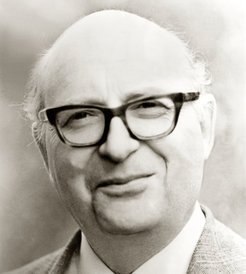
Victor P. Whittaker profoundly contributed to the understanding of neuronal synapses. He was the first to isolate so-called synaptosomes that made it possible to investigate synaptic signal transduction. He also succeeded in proving that synaptic vesicles contain neurotransmitters.
Victor P. Whittaker studied chemistry and biochemistry in Oxford (England) and also completed his PhD there. From 1951 until 1955, he was assistant professor at the University of Cincinnati (USA). After some years in Cambridge (England), and as visiting professor in New York (USA) he was appointed Director at the MPI for Biophysical Chemistry in 1973. After his retirement in 1987, he initially continued research at the institute, then spent a short period at the University of Mainz before returning to Cambridge.
Klaus Weber († 2016)
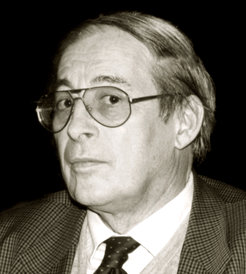
Biochemistry and Cell Biology (1975-2004) - Contact (to Mary Osborn)
Klaus Weber`s research focused on the cytoskeleton and biochemical anatomy of actin-containing structures such as stress fibers and microvilli, on microtubules, and intermediate filaments. He pioneered the use of immunofluorescence microscopy to visualize the arrangements of these and other structures in cells and tissues. Using protein chemistry, six different actins as well as five different cytoplasmic intermediate filament types were defined. The development of monoclonal antibodies specific for each intermediate filament type provided reagents that can be used to classify human tumors. His laboratory was also involved in the development of RNA interference technology.
Klaus Weber received his PhD in Chemistry in 1964 from the University of Freiburg. He was then postdoctoral fellow, Assistant, Associate, and Full Professor at Harvard University (USA). From 1975 until his retirement in 2004, he was Director at the MPI for Biophysical Chemistry and headed the Department of Biochemistry and Cell Biology. In 1987, he became honorary professor at the University of Göttingen. He played an important role in the change in scientific direction at institute so that today it includes not only biophysical chemistry but also key areas in molecular, cell, and developmental biology.
Erwin Neher
Membrane Biophysics (1983-2011) – Contact

With his Emeritus Group Erwin Neher investigates the mechanisms of neurotransmitter release and synaptic short-term plasticity. Furthermore, the role of calcium ions in signal transduction is a focus of his interest.
Erwin Neher studied physics in Munich and Madison (USA) and received his PhD from Munich Technical University. Afterwards, he became assistant at the MPI for Biophysical Chemistry. In 1975/76 he worked at Yale University (USA) and qualified as university lecturer at the University of Göttingen in 1981. From 1983 until his retirement in 2011, he was Director at the MPI for Biophysical Chemistry and Head of the Department of Membrane Biophysics. He has been heading the Emeritus Group Membrane Biophysics since. Together with Bert Sakmann he received the Nobel Prize in Medicine or Physiology in 1991 for his groundbreaking discoveries concerning the function of single ion channels in the cell membrane.
Bert Sakmann
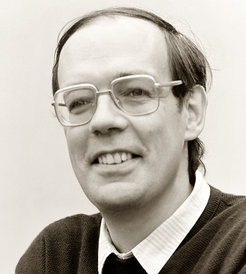
Cell Physiology (1985-1988) – Contact
With his Emeritus Group at the MPI of Neurobiology Bert Sakmann studies the functional anatomy of circuits in the cerebral cortex and works on the in silico reconstruction of a cortical column.
After studying medicine in Tübingen, Freiburg, Berlin, Paris, and Munich, Bert Sakmann initially worked as an assistant with Otto Creutzfeldt at the MPI of Psychiatry in Munich. In 1971, he temporarily moved to the University College London and received his PhD from the University of Göttingen in 1974. Thereupon, he again joined the lab of Otto Creutzfeldt, now at the MPI for Biophysical Chemistry. After his habilitation in 1982, Bert Sakmann became Director at the instituted and Head the Department of Cell Physiology in 1985. In 1988, he moved to the MPI for Medical Research in Heidelberg and was named professor at the University of Heidelberg in 1991. In the same year, Bert Sakmann received the Nobel Prize in Physiology or Medicine together with Erwin Neher for his groundbreaking discoveries concerning the function of single ion channels in the cell membrane. Bert Sakmann retired in 2008.
Dieter Gallwitz
Molecular Genetics (1986-2004)
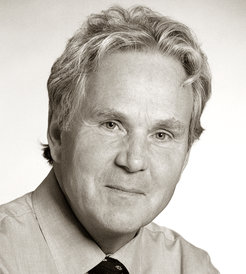
Dieter Gallwitz' research provided important insights in the fields of histone biosynthesis and -modifications, RNA splicing, and protein transport between different cellular compartments. A special focus of his work were so-called Ypt/Rab-GTPases discovered by him, which play a central role in vesicle trafficking during exo- and endocytosis.
Dieter Gallwitz studied medicine and received his MD from the University of Frankfurt am Main in 1964. Thereafter, he worked at the University of Marburg until 1967. After two years at the University of Wisconsin in Madison(USA) he returned to Marburg in 1969 where, after his habilitation, he was appointed as professor for physiological chemstry in 1971. In 1977, he worked as visiting professor at the University of California in San Francisco (USA) and, in 1995, carried out research as Foreign Scholar at the UC San Diego (USA). The MPI for Biophysical Chemistry appointed him as Director in 1986. He headed the Department of Molecular Genetics until his retirement in 2004. Since 1990, he has been honorary professor at the University of Göttingen.
Peter Gruss
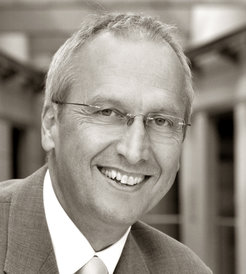
Molecular Cell Biology (1986-2014)
Peter Gruss put his research focus on gene regulation and analyzed processes that control genetic programs of tumor viruses and during embryonic development. In mice he identified the so-called pax genes that regulate the development of various organs. Moreover, he significantly contributed to understanding the development of the pancreas’ insulin-producing islets of Langerhans.
Peter Gruss studied biology at the Darmstadt University of Technology. After his diploma in 1973, he did his PhD at the German Cancer Research Center (DKFZ) in Heidelberg, where he also worked as assistant thereafter. After four years at the National Institutes of Health in Bethesda (USA), he was appointed professor at the Institute of Microbiology in Heidelberg in 1982. From 1986 until his retirement in 2014, he was Director of the Department of Molecular Cell Biology at the MPI for Biophysical Chemistry and since 1990 also honorary professor at the University of Göttingen. Furthermore, from 2002 until 2014 he was President of the Max Planck Society.
Jürgen Troe
Spectroscopy und Photochemical Kinetics (1990-2008) – Contact
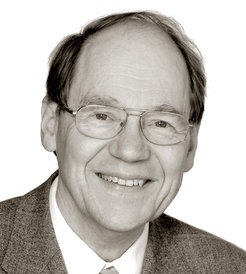
Jürgen Troe's research areas are reaction kinetics and the investigation of reactions of molecule ions in plasma. Based on their findings, he and his co-workers develop theoretical models that can be applied in various fields: in astro- and atmosphere chemistry as well as in plasma- and photo chemistry and in combustion chemistry.
Jürgen Troe received his PhD in physical chemistry from the University of Göttingen. In 1971 he became professor at the École Polytechnique Fédérale in Lausanne (Switzerland). In 1975, he returned to Göttingen as Director at the Institute of Physical Chemistry of the University of Göttingen. Additionally, from 1990 until his retirement in 2008, Jürgen Troe was Director at the MPI for Biophysical Chemistry and headed the Department of Spectroscopy and Photochemical Kinetics. With his Emeritus Group he is continuing his research at the institute. Jürgen Troe also holds a Niedersachsenprofessur at the University of Göttingen. Jürgen Troe is one of the founders of the Laser-Laboratorium Göttingen e.V. (LLG).
Herbert Jäckle
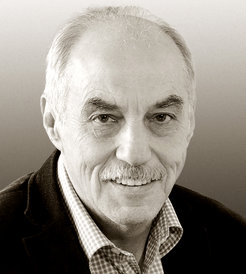
Molecular Developmental Biology (1991-2017) – Contact
With his research, Herbert Jäckle gained crucial insight into the early development of the fruit fly Drosophila melanogaster. His work especially contributed to understanding how this development is regulated on the molecular level and how the fly keeps its energy metabolism in balance. Together with his co-workers he identified important genes and molecular mechanisms which also control organ formation and energy metabolism in humans.
Herbert Jäckle studied biology and chemistry and received his PhD from the University of Freiburg in 1977. He then worked at the University of Texas in Austin (United States), at the European Molecular Biology Laboratory in Heidelberg, and at the MPI for Developmental Biology in Tübingen. In 1987, he was appointed professor at the Ludwig-Maximilians-Universität München before joining the MPI for Biophysical Chemistry as Director in 1991. Here, he headed the Department of Molecular Developmental Biology until 2017. He is continuing his research at the institute with his Emeritus Group. Additionally, Herbert Jäckle has been honorary professor at the University of Göttingen since 1993 and was a Vice President of the Max Planck Society from 2002 until 2014.
Reinhard Jahn
Neurobiology (1997-2018) – Contact
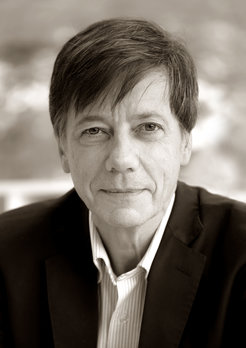
Reinhard Jahn’s research focuses on the fusion of biological membranes. In particular, he studies the loading of synaptic vesicles with neurotransmitters and their fusion with the synaptic plasma membrane of neurons during signal transmission. He was instrumental in identifying the protein synaptotagmin as a sensor of the calcium signal that triggers neurotransmitter release. Moreover, he showed that so-called SNARE proteins play a crucial role in membrane fusion. For example, he demonstrated that neurotoxins such as botulinum and tetanus toxins degrade SNARE proteins, blocking synaptic signaling. Furthermore, he determined the three-dimensional structure of the SNARE complex and developed a model for the fusion mechanism that is still valid today. He also developed the first quantitative molecular model of a transport vesicle.
Reinhard Jahn studied biology and chemistry at the universities of Freiburg and Göttingen and obtained his PhD from the University of Göttingen. After holding positions at Yale and Rockefeller university, respectively, and at the Munich MPI for Psychiatry (now Neurobiology), he was appointed professor at Yale University in 1991. In 1997, he joined the MPI for Biophysical Chemistry as director and headed the institute’s Department of Neurobiology until his retirement in 2018. Since then, he has continued his work with his Emeritus Group. Reinhard Jahn has been an honorary professor at the University of Göttingen since 2001 and was president of the university from December 2019 to the end of 2020.
Reinhard Lührmann
Cellular Biochemistry (1999-2019) – Kontakt
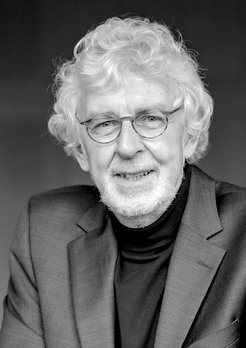
The primary goal of Reinhard Lührmann‘s research is to understand the structure and the function of the splicing machinery. One main question he wish to address is how the structural rearrangements of the spliceosome during its work cycle are directed and regulated. Another is what is the nature of the catalytic center of the spliceosome – for example, does it consist only of RNA components (like a ribozyme), or do RNA and protein both contribute to catalysis (as in an RNP enzyme)? To answer these questions his emeritus group is using an integrated experimental approach that involves a broad palette of methods
Reinhard Lührmann received his PhD in chemistry at the University of Münster in 1975. From 1981 to 1988, he headed a research group at the Otto Warburg Laboratory at the MPI for Molecular Genetics in Berlin. In 1982, he acquired his habilitation in molecular biology and biochemistry at the Free University of Berlin and became professor for physiological chemistry and molecular biology at the University of Marburg 1988. He has headed the Department of Cellular Biochemistry at the MPI for Biophysical Chemistry since 1999. Reinhard Lührmann has been awarded numerous prizes, such as the Leibniz Prize (1996), the Feldberg Prize (2002), the Ernst Jung Prize for Medicine (2003), the Cozzarelli Prize (2006), and the Lifetime Achievement Award of the RNA Society (2014). He is an honorary professor at the University of Göttingen.
Gregor Eichele
Genes and Behavior (2006-2021) – Kontakt
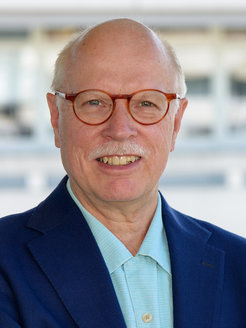
Gregor Eichele investigates the dynamic interplay between gene expression, development and behavior in the mouse. Recently, his team developed efficient methods to detect, visualize, archive and mine spatial gene expression patterns in mammalian tissues at the mRNA level (www.genepaint.org). These data provide a powerful starting point to address the genetic regulatory network. Research focusing on mammalian brain development attempts to establish hierarchies in signaling cascades while their chronobiology studies are directed at the discovery and elucidation of novel pathways by which genes control circadian behavior at an organismal level.
Gregor Eichele studied chemistry and structural biology and completed his doctorate in 1980 at the University of Basel (Switzerland). He then worked as a postdoctoral fellow at the University of California, San Francisco (United States) from 1981 to 1984. Thereafter, he was a member of the faculty of in Houston (United States). From 1997 to 2006, he was Director at the MPI for Experimental Endocrinology. In 2006, he was appointed as Director at the MPI for Biophysical Chemistry, where he has been heading the Department of Genes and Behavior until his retirement. Since then, he continues his research with his emeritus group Rhythms - Beating Cilia and Ticking Clocks. Gregor Eichele received numerous distinctions for his research, including the Friedrich Miescher Prize, the McKnight Neuroscience Development Award, and the Innovation Award in Functional Genomics.



















